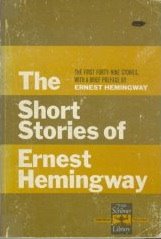 Experimental fiction is something I am drawn to, I think, just by way of having something new to read and decipher. Sometimes the payoff is well worth it, sometimes, not so much.
Experimental fiction is something I am drawn to, I think, just by way of having something new to read and decipher. Sometimes the payoff is well worth it, sometimes, not so much.The Invention of Hugo Cabret was a huge payoff.
Probably most interesting is that the story is told in the form of a silent film, with pictures lending just as much (if not more) to the story as the words. The pictures, done by the author in pencil, are so detailed and interesting that you can lose yourself just staring at any one of the hundreds through the book. And the story itself is a compelling one, filled with mystery, intrigue, legends, and the importance of family and friendships.
I guess you could say I enjoyed it. This was a book my wife recommended to me after she read it (plowed through is the best way to describe how she devoured this book) and I felt, after a few months, that it was time I stop ignoring her urges and read the book. Needless to say, she has an appreciation for good stories.
The story of Hugo Cabret is a good one, like I said. Hugo is a young boy, eleven or so years old, who has taken over fixing the clocks in a Paris train station from his mischevious uncle, recently gone missing. He gets caught stealing a toy from a dealer that sets off a chain of interconnected events that leads Hugo to an impressive discovery about his father and a mysterious automata he has been keeping for some time.
I don't do this book justice. It's a hip book to read now because it's good and different. Read it. It's quick and outstanding, and the pictures are so much more enjoyable than the cover, which is good anytime that happens.


No comments:
Post a Comment